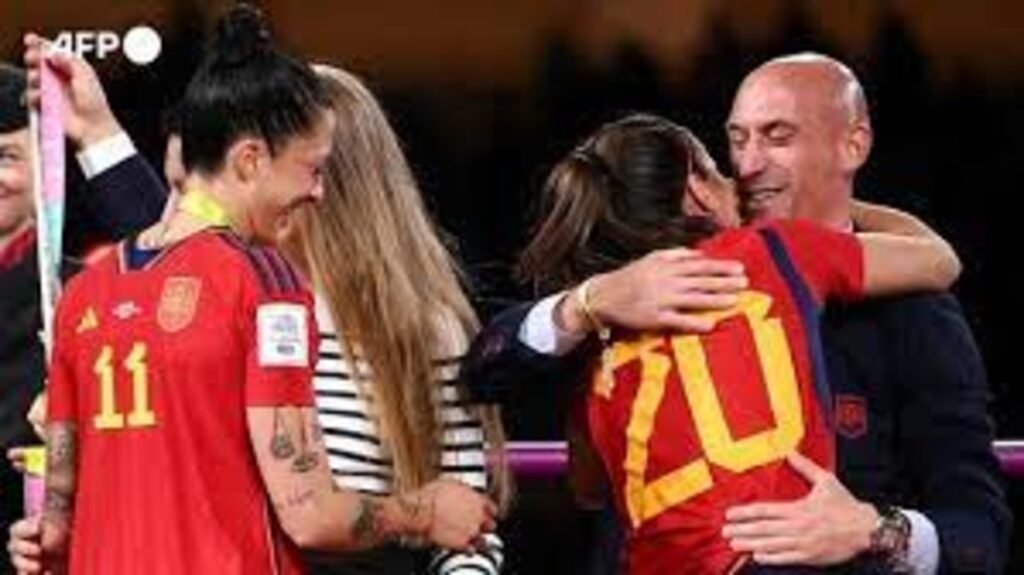August 26, 2023
Introduction
Amidst the jubilation of Spain’s victory at the 2023 FIFA Women’s World Cup, a shadow has been cast over the Spanish football scene as FIFA suspends Luis Rubiales, the president of the Spain Football Federation (RFEF). The suspension comes in the wake of a post-match incident where Rubiales was seen kissing player Jenni Hermoso on the lips during the final’s award ceremony.
The controversy unfolded on the grand stage of the Women’s World Cup final, where Spain emerged triumphant. However, the euphoria quickly turned into a contentious matter when Luis Rubiales, the head of the RFEF, was captured planting a kiss on player Jenni Hermoso’s lips during the post-match celebration. The incident sparked a wave of debates and allegations, prompting FIFA to take action.

Rubiales, who vehemently denied any wrongdoing, argued that the kiss was consensual. However, Hermoso promptly contradicted his claim, stating that she did not give her consent and the gesture was unwanted. This conflicting narrative led to a rift between the players, the federation, and the football community at large.
FIFA, in a decisive move, suspended Luis Rubiales from all football-related activities for an initial period of 90 days pending further investigation into the incident. The chairman of the FIFA Disciplinary Committee, Jorge Ivan Palacio, cited Article 51 of the FIFA Disciplinary Code as the basis for this provisional suspension. In addition to the suspension, FIFA issued directives for Rubiales to refrain from contacting Jenni Hermoso or her close circle, and also ordered the RFEF and its officials to avoid such contact.
FIFA On the Incident
FIFA’s statement emphasized its commitment to upholding the integrity of individuals and condemned any behavior to the contrary. The global football governing body made it clear that it would not provide further information on the disciplinary proceedings until a final decision had been reached.
Before FIFA’s action, the Royal Spanish Football Federation (RFEF) had expressed its support for Rubiales. However, the tide changed with FIFA’s decision, and the RFEF decided to comply with the suspension. In a preemptive statement issued before the FIFA ruling, the Spanish FA asserted its intent to counter any alleged falsehoods spread by Hermoso or her supporters. The FA also announced its intention to legally defend Rubiales, who refused to step down from his role as RFEF chief despite growing pressure.
Adding to the turmoil, the Spain women’s national team united in a joint declaration, announcing their refusal to participate in international matches as long as Rubiales remained in his position. This marked display of solidarity by the World Cup-winning squad, along with 32 other members, underscored the deep divisions and unrest within Spanish women’s football.
Conclusion
As the controversy continues to unfold, the Spanish football community finds itself grappling with conflicting accounts, allegiances, and a profound debate about respect and consent. The suspension of Luis Rubiales casts a shadow on Spain’s football triumph, raising questions about the administration and culture within the sport that extends far beyond the realm of the game itself.




